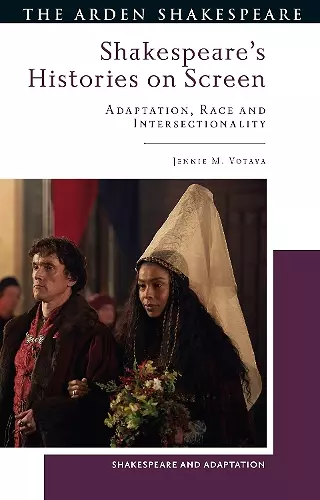Shakespeare’s Histories on Screen
Adaptation, Race and Intersectionality
Format:Hardback
Publisher:Bloomsbury Publishing PLC
Published:27th Jul '23
Currently unavailable, and unfortunately no date known when it will be back

Theorizing a link between adaptation and intersectionality, this study examines how contemporary screen adaptations of Shakespeare’s English history plays provide an open yet contested site for constructing race alongside other, intersectional identity categories such as gender, sexuality, class, disability, ethnicity and nation.
This volume reframes the critical conversation about Shakespeare’s histories and national identity by bringing together two growing bodies of work: early modern race scholarship and adaptation theory. Theorizing a link between adaptation and intersectionality, it demonstrates how over the past thirty years race has become a central and constitutive part of British and American screen adaptations of the English histories. Available to expanding audiences via digital media platforms, these adaptations interrogate the dialectic between Shakespeare’s cultural capital and racial reckonings on both sides of the Atlantic and across time. By engaging contemporary representations of race, ethnicity, gender, sexuality, disability and class, adaptation not only creates artefacts that differ from their source texts, but also facilitates the conditions in which race and its intersections in the plays become visible.
At the centre of this analysis stand two landmark 21st-century history adaptations that use non-traditional casting: the British TV miniseries The Hollow Crown (2012, 2016) and the American independent film H4 (2012), an all-Black Henry IV conflation. In addition to demonstrating how the 21st-century screen history illuminates both past and present constructions of embodied difference, these works provide a lens for reassessing two history adaptations from Shakespeare’s 1990s box office renaissance, when actors of colour were first cast in cinematic versions of the plays. As exemplified by these formal adaptations’ reappropriations of race in history, non-traditional Shakespearean casting practices are also currently shaping digital culture’s conversations about race in non-Shakespearean period dramas such as Bridgerton.
ISBN: 9781350326644
Dimensions: unknown
Weight: unknown
272 pages